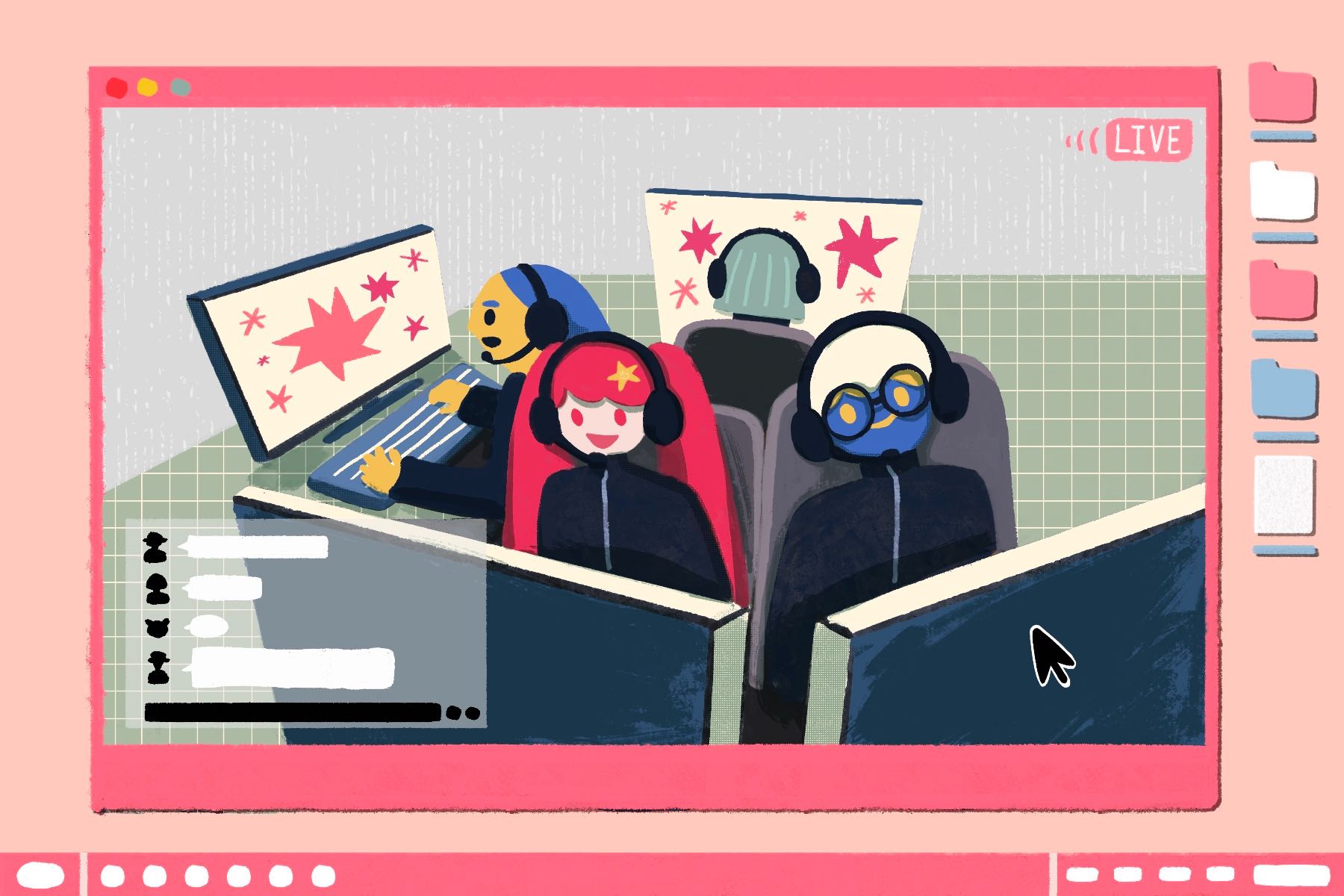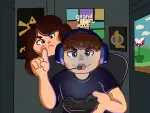Esports, or electronic sports, have always been a part of video game culture. Video game tournaments first arose in the 1970s, but until recently they haven’t been considered a legitimate sport. Critics of esports’ legitimacy had every right to be skeptical of career gaming 20 years ago, but with the increase in pay of esports professionals and viewership, people’s perceptions of professional gaming are rapidly shifting.
Professional gaming has taken off in the last few years with the help of streaming media platforms, like YouTube and Twitch, where gamers stream their gameplay live to hundreds of thousands of viewers.
Classifying esports as a legitimate sport continues to be a topic of debate, but as esports become more popular, especially among the youth, the number of professional gamers continues to rise. Many negatively label competitive gaming as a stain on the sports industry, but these traditional views will eventually go extinct as esports become more ingrained into our modern culture.
Like other sports, expertise in esports depends on your commitment, not upon your innate talent. Research in learning and success suggests that anyone who puts in the hard work can attain expertise. Although genes control our potential for performance in music, sports and video games, they can’t actively change that ability throughout our lifetimes.
Environmental exposure, however, can shape our predisposed gaming potential into success. Genes set our starting point, or our baseline of ability but, once we are born, the environment takes over the larger role in determining our success.
In the book “Outliers,” Malcolm Gladwell builds upon research done regarding success and claims that anyone, regardless of genetic predispositions, can gain expertise. Gladwell claims that “ten thousand hours is the magic number of greatness,” meaning that success in any field can be accomplished if you practice a task 20 hours a week for 10 years. Gaming is like any other field of expertise: Genetics may contribute to your innate talent, but practice breeds greatness.
To practice, you need to restrict your focus to a particular game that you can excel at and enjoy. Like musical experts, gaming experts excel within their own domains, so it is important to first determine which game you wish to play.
The most popular types of games include first-person shooters, real-time strategies and multiplayer online battle arenas. If most of your gameplay in the past has been associated with first-person shooter games or Microgaming slots, it might be difficult for you to gain expertise in real-time strategy games and vice versa.
The most important factors to consider when deciding which game to pick are your personal interests and innate skills. To evaluate your interest, consider the game’s difficulty, usefulness and importance. You should also take into account your innate skill for the games you’re considering. Are you naturally talented at the game? Is there a certain game that you have always been good at? Ask yourself these questions to decide which game you wish to pursue, so you can begin engaging in deliberate practice.
If you wish to become a professional gamer, but don’t know where to start, you can begin by examining the success of popular esports pros. By studying the success of experts, you can establish a pathway for your own success in competitive gaming.
Professional gamer Faker, three-time world champion of League of Legends, admits that he wasn’t born with an innate talent for the game. Faker maintains his belief that his success is a direct result of the practice he’s put into his craft. Faker claimed his team is the best merely because they “practice more than any other team.” His success story exemplifies the importance of practice in professional gaming and shows us that greatness is achievable by anybody who puts in the hours.
If you are a beginner, attending an esports camp could be beneficial. Many of these camps hire professional gamers that help you strengthen your practice habits, reflexes and overall gameplay. Some parents consider video games a waste of time, and in some circumstances they are right. If you want to become a professional gamer and have skeptical parents, convince them you are committed towards attaining a specific goal.
Committing yourself to an organized program, like an esports summer camp, is an excellent way to get your unconvinced parents on board. Although most of these camps are for children, there are several programs for older individuals wishing to pursue a career in esports.
Not all esport games are team oriented, but if you wish to play a team game, search for a group that motivates you to improve. Finding a good team is imperative for your success. Focus on finding teammates that are communicative, helpful and insightful so you can establish productive strategic habits.
Once your team reaches a certain skill level, consider joining a gaming league. Gaming leagues take part in regular tournaments and championships, which forces you to put your money where your mouth is. Pushing your team into a competitive and stressful environment will reveal your teammates’ strengths and weaknesses. This forces your team to either fall apart, or to engage in collaborative teamwork. Communication allows you to reinforce or condemn your teams’ behavior and should be built from mutual respect.
Regardless if you want to game with a team or individually, joining a league and taking part in online tournaments is essential for success. It is also helpful to download your gameplay to streaming services like Twitch, so you can gain followers, make connections and monitor your improvement.
To pursue a career in competitive gaming, recognize the irrelevance of your innate gaming ability, practice regularly, choose a game and team that’s suited towards your preferences and participate in routine tournaments.
















